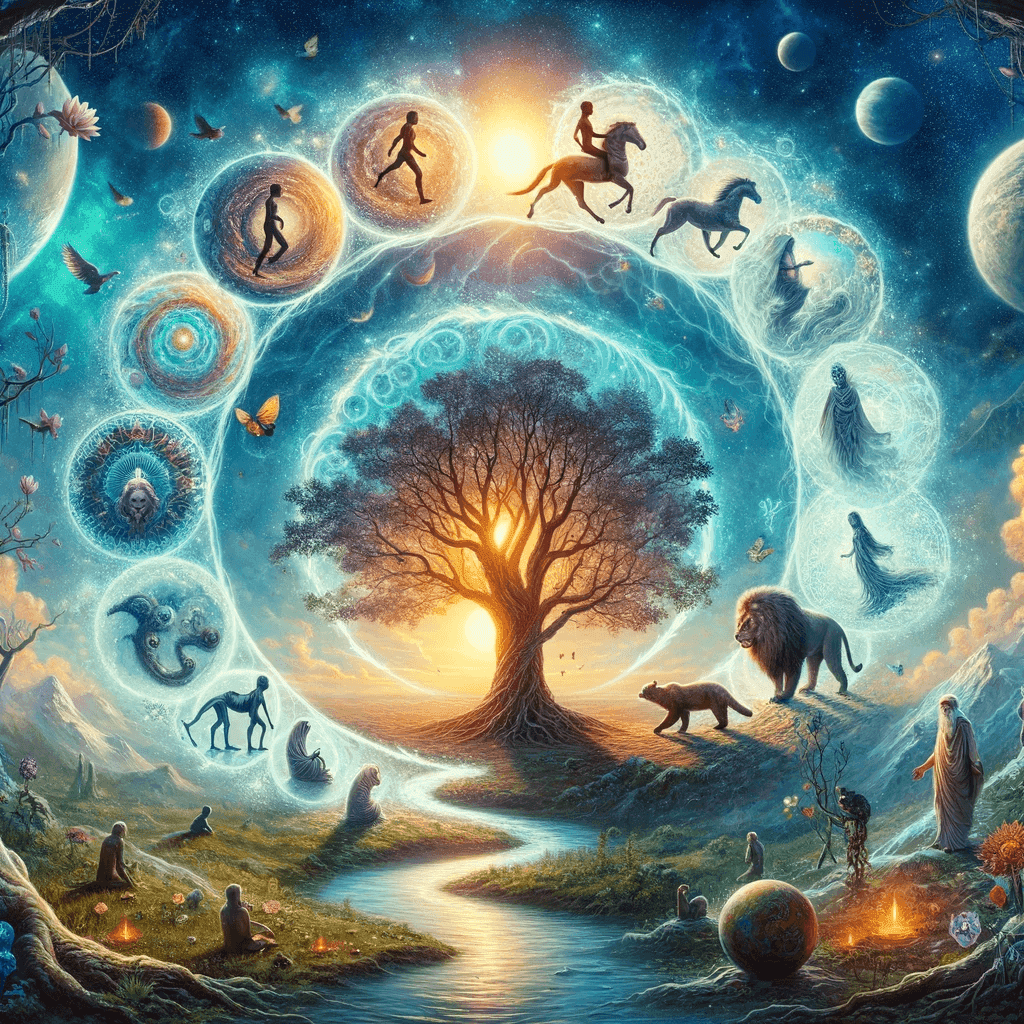Reincarnation and Its Purpose in Sanatan Dharma
A common myth about Sanatan Dharma (Hinduism) is that reincarnation is seen as a punishment for past sins. However, Sanatan Dharma views reincarnation as a natural consequence of one's actions (karma), offering opportunities for growth, learning, and ultimately, liberation (moksha), rather than as a form of punishment.
Myths/Truths and Other Details

Why There is a Myth?
The misconception likely arises from a simplistic interpretation of karma and reincarnation, focusing solely on the negative consequences of actions. This perspective overlooks the broader and more nuanced understanding of these concepts in Sanatan Dharma, which views life as a journey of spiritual evolution.
What's the Truth?
In Sanatan Dharma, reincarnation is understood within the framework of karma, the law of action and reaction. It is a process through which the soul evolves, learning and growing through various experiences across different lifetimes. The ultimate goal is not to attain heaven (swarga) but to achieve moksha, liberation from the cycle of birth and death.
The Concept of Karma and Reincarnation
- Karma: Karma refers to the actions performed by an individual and their consequences. It governs the cycle of birth, death, and rebirth, influencing the nature of each incarnation.
- Reincarnation: Reincarnation is the belief that the soul is reborn in different bodies across various lifetimes. Each incarnation provides the soul with opportunities to learn from its actions and progress spiritually.
Philosophical and Spiritual Dimensions
- Opportunities for Growth: Each life is an opportunity for the soul to learn from its experiences, overcome challenges, and grow spiritually.
- Liberation (Moksha): The ultimate goal in Sanatan Dharma is to achieve liberation from the cycle of reincarnation, attained through spiritual realization and the resolution of karma.
Modern Interpretations and Global Influence
- Contemporary Understanding: Modern interpretations of Sanatan Dharma emphasize the positive aspects of reincarnation as a journey of learning and spiritual evolution.
- Global Perspective: The concepts of karma and reincarnation have influenced global spiritual thought, contributing to a broader understanding of life, death, and the afterlife.
...




